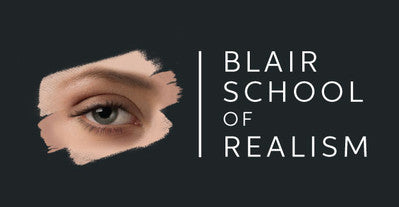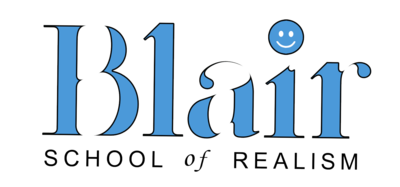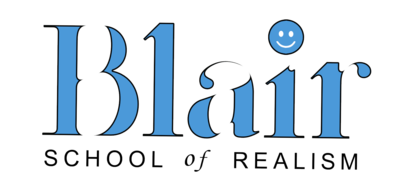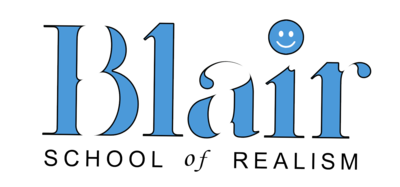Superhero Workshop August 7-11, 2019

Are you ready
to create your
superhero painting?
Finally a workshop dedicated to the heroic figures of the Marvel® Universe!
In this workshop, we focus on recreating the gorgeous movie posters that represent the essence of the movies and characters.

Yes, it is
challenging
because there are more than portrait elements involved.
There are splashes of color, uniforms, hardware, space elements and of course, explosions.
Welcome to the most
amazing superhero
airbrush workshop
on the planet!
You could spend years (or more likely, decades) trying to
unlock all the secrets of movie poster painting. Now it’s possible
for you to realize your artistic potential in a fraction of the
time that it would take if you tried it on your own.


Color theory that
solves all your
color matching
challenges
Learn all about Color Buffer Theory,
Transparents vs Opaques, Dot of Death recovery exercise,
and how compose a movie poster, and that's on the first day!
The tools you need
We aren’t just limited to teaching you all about the airbrush.
We include a variety of other art tools to help you make your
present and future art work the best possible.

What you will learn
01
Movie Poster Composition
All good movie poster share a strong sense of composition, and you will learn the essential elements of balance, counterpoint, and the use of negative space that goes into every movie poster
02
Extended 5-Day Course
This is an ambitious project covering multiple subjects. You will learn about portraits, uniforms, celestial objects, lighting, aircraft, and dynamic color.
03
The 8 differences between Opaque and Transparent paint
There are a lot of opinions as to which is better. The answer is that each possesses unique characteristics which need to be considered first. You will learn all the differences, and when and why to use each.
04
Color Buffer Theory
Our original theory was initially conceived in the eighties, and is now practiced in some form all over the airbrush world. This is a practical approach to color and color mixing that corresponds to the way paint behaves in the real world. It is simple to understand, yet comprehensive in scope.
05
The correct way to use the Color Wheel
The color wheel is a compass. We will show you how to choose the right color wheel and how to use it correctly. It can be your best aid when mixing and matching colors.
06
How to match color....perfectly
Color can be intimidating, but fear of color will be a thing of the past after we show you how to match a color dead on every time. You will love this process, especially if you are tired of painting in shades of grey.
07
Understanding simultaneous contrast and the role it plays in your paintings
Simultaneous contrast is the illusion that colors close to each other seem more different than they actually are. We will show you how to harness this problem with color discrimination and turn it into one of your most powerful assets.
08
5 ways to address catastrophic errors
Sooner or later, we all make painting mistakes. If you don’t know how to repair a mistake, your painting will be compromised. We will teach you several ways to repair a mistake, so you will always choose the correct one for your painting.
09
5 ways to transfer the image to your painting
It's essential to maintain proportions when transferring the photograph to your painting surface. Learn which methods are most effective.
10
Different types of shields and when to use them
The visual world contains a variety of edges. Some edges are soft, some are hard, and some are in between. You will learn many different useful techniques to create every type of edge.
11
The essential methods for painting the eye
The eye is the most important feature of the face, so we will take an in-depth look at why it appears as it does, and how to best render it. You will learn 4 different techniques to create lashes, as well as the “magic” paint formula for lashes and brow color.
12
7 ways to use a hand-held shield
The shield is more versatile than most artist realize. For example, the bounce method allows you to add subtle, almost imperceptible adjustments to you painting.
13
Introducing 5 additional tools
We don’t limit your training to just the airbrush. There are many tools that complement the airbrush, and we want you to be able to enjoy having them in your arsenal. You will also learn the results for each tool, so you will know which tool is best for each situation.
14
3 eraser techniques that will make a difference in your art
The eraser is a versatile instrument, and when properly used, and blend or cut like a knife. We will show you how to get the most out of your eraser.
15
Using the blade correctly
The blade can be a wonderful ally, but it will destroy your painting if you don’t use it correctly. Here we will show you exactly how to hold it, and how to operate it on different surfaces.
16
The 6 rules to make hair look real
If you want your hair to look more realistic, then follow these simple rules. We will show them all to you, as well as some extra hair tips for greater realism.
17
Frisket vs paper
Frisket can be one of the best tools for creating crisp edges, but it can also cause problems with your painting surface. Paper has its advantages and disadvantages as a mask too. You will learn all about both types.
18
Managing edges and transitions
Movie posters have a tremendous amount of blending between the elements. Adjusting existing edges is always necessary, but can be a bit tricky. We will teach you how to transition multiple elements and blend them into one cohesive image.
19
5 masking techniques that work
A mask can be used in a variety of ways. For example, you could use split paper/frisket techniques, shield reveal or shield conceal methods to create a line. You will learn which masks are best for any given situation.
20
How to create skin texture
Skin is a complex, translucent, subtle, and textured surface. We will show you several ways to quickly achieve photorealistic skin.
21
Buffered Contrast Reduction, and how to use it
Contrast, along with proportions, and edges, can make or break a painting. Controlling contrast is simple using a method known as Buffered Contrast Reduction. You will learn what it is and how to use it.
22
How to find and fix problems in your paintings
Sometimes you can’t see the forest for the trees, and often mistakes go unnoticed. We will show you a simple technique that allows you to quickly spot problem areas that you would have otherwise overlooked.
23
How to develop observation techniques to expand your visual discrimination
It’s difficult to paint anything accurately until you can really see it. We will teach you how to visually dismantle an object, then reassemble it on the painting surface.
State of the Art Classroom
unlike any other on the planet
Color corrected lighting. Central Ventilation
On-site lodging on a 120-acre campus
nestled in a National Forest

What students are saying

I attended Dru's workshop with the hope of learning to paint, I left with the ability to "see" and a system that allowed me to develop my own understanding of painting and colours. Your system has given me the freedom to explore my own creativity.
Paul MacDonald
(Airvengers) Australia

Dru's teachings showed me how to create great detail and gave me the ability to achieve PHOTOREALISM in my artworks. Thank you for pioneering the world of photorealism in airbrushing, I doubt I would have got here without your long nights and many experiments .
David Naylor
Spain
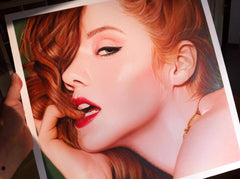
Dru's workshop influenced the way I paint and gave me some new concepts, knowledge and skills to implement into the way I worked today I recommend it!
Mitch Lowther
(Airbrush tutor) Australia

Our
Guarantee
We are so sure that we offer the best airbrush course in the world that we are willing to offer you tuition money back if you don’t notice an immediate improvement in your art, and in the way you see the world after taking this course.

On using photographic reference
You might assume that our workshops are about copying photographs, but in reality, these workshops are about learning to see.
True, like everyone, we use photographs as a guide for practicing techniques and to measure our success, but the end product of each of these workshops is for you to understand and see the world differently, especially when it comes to color.
This gives you the power to create or re-create reality with stunning photorealism, and at a level no other airbrush workshop in the world offers. Once you can paint photorealistically, you can paint in any style you please.
All artists plagiarize from nature. We take our inspiration from the visual world around us and re-create it on board, metal, or canvas. At the Blair School, we would like to show you how to do it more successfully.

